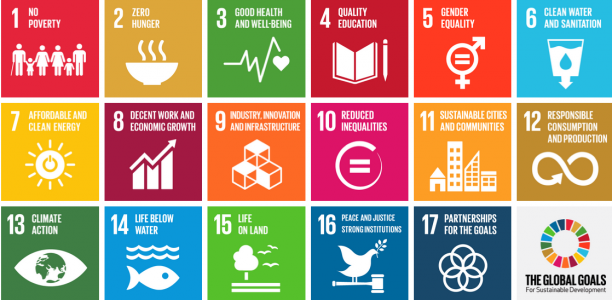“The greater danger for most of us isn’t that our aim is too high and miss it, but that it is too low and we reach it.” ~ Michelangelo
Goals are important. They define specific conditions we’d like to achieve in the future. Goals can be short or long-term, personal or professional, and it’s good to have some of each. Many people think about goals at the start of a new year and call them new-year’s resolutions.
Individuals, organizations, communities, and societies all set goals.
Goals emerge from a recognition that where things stand now is not where we want them to be, that things can be better. Goals exist to catalyze and focus progress; progress toward specific desirable outcomes. Meaningful goals are based on our core values. They stretch us and require commitment and effort and the faith that we can achieve them. They mean something to us, so we are willing to do what it takes to get the positive results we want.
The sustainability movement is all about creating positive results based on core human values:
- Being and doing our best as individuals;
- Seeing and bringing out the best in others;
- Treating the world around us with care and respect;
- Passing along a better world to the next generation.
It’s about creating a future in which we all want to live, in bountiful conditions where life flourishes.
This means taking a clear-eyed look at where things stand now, comparing that to our shared vision of what we want to achieve, setting goals, and taking action to reach those goals.
You may know that has happened recently on a global scale. Twice. In the year 2000, the global community under the auspices of the United Nations developed eight Millennium Development Goals (MDGs) to be achieved by 2015.
In September 2015, 190 world leaders committed to following up the MDGs with 17 Sustainable Development Goals (SDGs) to be achieved by 2030. Here’s a three-minute video about the transition from the MDGs (with a summary of achievements) to the SDGs and a one-minute video summarizing the SDGs.
 Take a quick look at the SDGs and you will realize a very important point: No matter our field of study, our line of work, our place in the community, we all have a niche to fill in achieving these world-changing goals.
Take a quick look at the SDGs and you will realize a very important point: No matter our field of study, our line of work, our place in the community, we all have a niche to fill in achieving these world-changing goals.
It doesn’t matter where we act: in a local community, at a regional, national, or international scale. There is plenty to do and every talent, every skill, every kind of expertise, every kind of human endeavor can contribute. Every interaction with other people and with the built and natural world around us can make a difference.
The work should be positive, upbeat, engaging, invigorating, even fun. Our great friend and colleague, Alan AtKisson, wrote a song and created a 5-minute music video to make this point: “We Love the SDGs!”
Watch it, and if you’d like you can express your own playful “SDG Move” and submit it. The link to the video explains how.
The world is ours to make of it what we will. We are all in this together. Like a great sports team, theatre group, or musical ensemble, agreeing on shared goals and working together, with each one playing his or her role, we can create something beautiful.





Timely message Mike. And the video is very informative. I regret I knew so little about the MDGs.
I have seen TV ads highlighting the U of Alabama’s commitment to develop and implement solar power technologies on their campus. Auburn University should make the same commitment and advertise it. Not just to keep up with UA but because it is a proven strategy in pursuing sustainability on a college campus.
We have been investigating solar and wind power options for about nine months, both for on-campus generation and off-campus generation. The renewable energy market changes constantly and is continually innovating. We are working to determine our best options and next steps. Renewable energy is a high priority.